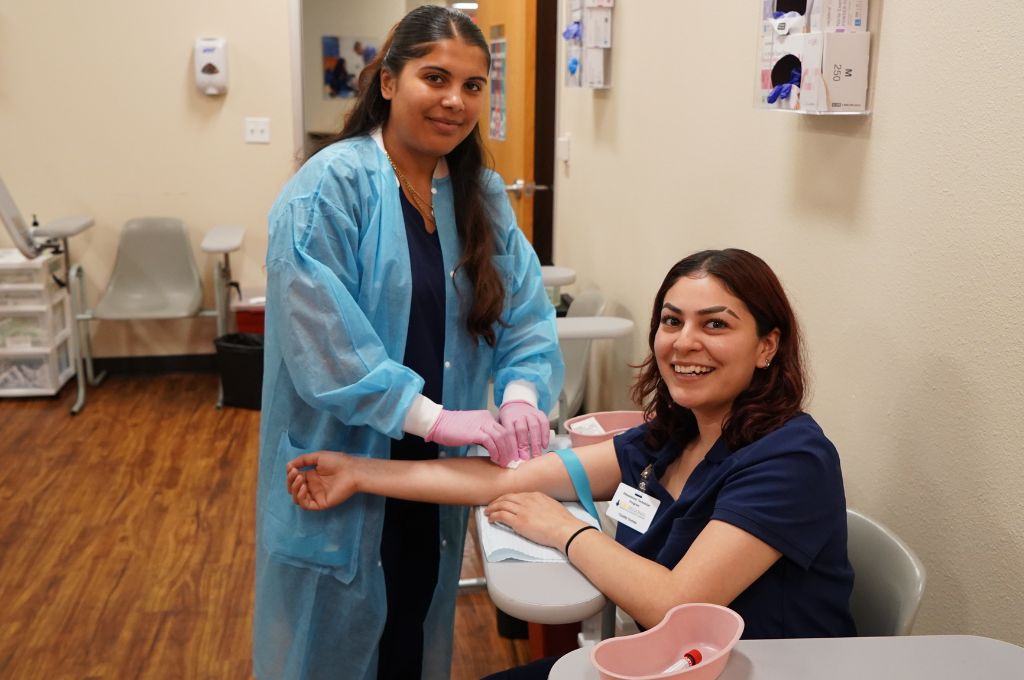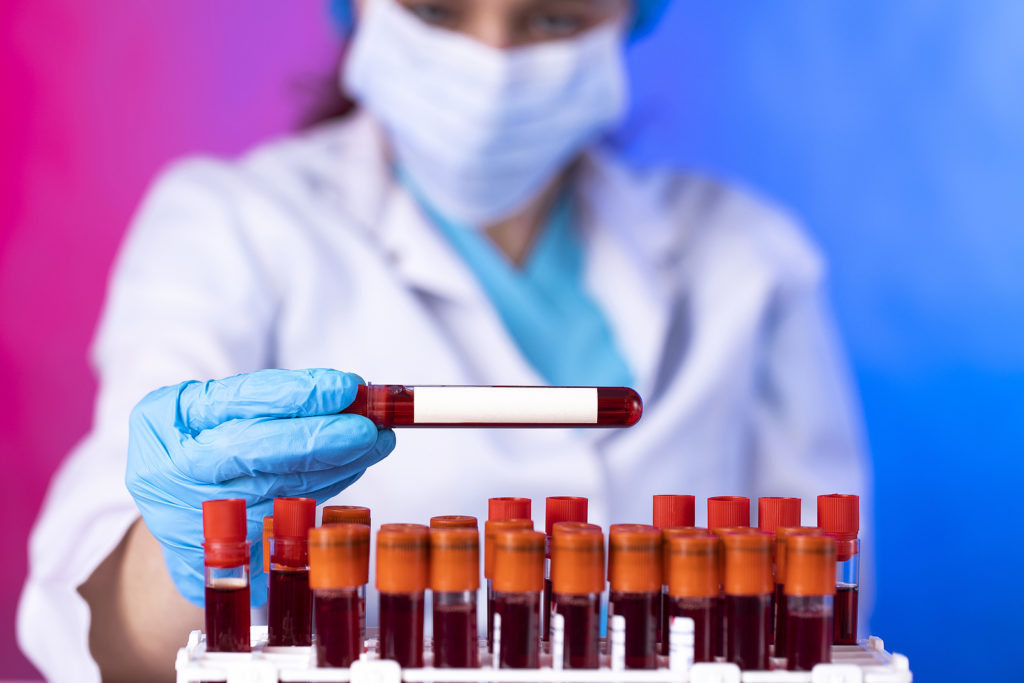Phlebotomy Classes Near Me: Flexible Options That Fit Your Schedule
Phlebotomy Classes Near Me: Flexible Options That Fit Your Schedule
Blog Article
The Course to Certification: Understanding the Phlebotomy Training Program Journey and Its Value
As you take into consideration the course to accreditation in phlebotomy, it's vital to recognize the role you'll play in healthcare. Your training will cover essential abilities, from blood collection strategies to patient communication.

The Duty of Phlebotomists in Health Care
Phlebotomists play an important duty in the medical care system, functioning as the important web link between people and vital analysis testing. You'll perform blood attracts, guaranteeing examples are gathered properly and safely. Your proficiency aids in diagnosing clinical conditions, checking health, and assisting treatment choices.
In your day-to-day interactions, you'll require to develop count on with people, making them feel comfortable throughout what could be a demanding experience. You are accountable for classifying and handling samples meticulously to stop contamination or mistakes, which could influence test results.
Beyond this, you'll typically work together with medical professionals and registered nurses, connecting critical info regarding individuals' problems. By grasping your abilities, you contribute meaningfully to client treatment, making you a crucial component of the clinical group.
Review of Phlebotomy Training Programs
When discovering phlebotomy training programs, you'll locate numerous kinds made to fit various timetables and finding out designs. Each program aids you develop essential abilities like blood collection and person communication. Recognizing these alternatives is crucial to choosing the right path for your job.
Kinds Of Training Programs
Several types of training programs are readily available for those looking to become competent in phlebotomy. Additionally, some healthcare facilities and centers use on-the-job training programs, supplying functional experience while you find out. Whatever course you select, each program intends to equip you with the needed abilities for a successful phlebotomy profession.

Secret Skills Established
Understanding phlebotomy requires a set of key skills that are established with complete training programs. You'll learn technical skills like proper vein selection, needle insertion, and blood collection methods. These hands-on methods ensure you can do procedures safely and effectively. Additionally, interaction skills are essential; you'll require to connect with people, clarify treatments, and placed them secure. Recognizing composition and physiology is essential, also, as it aids you find capillaries and understand the body's response to blood draws. Ultimately, you'll obtain expertise of safety protocols and infection control, ensuring you keep a sterilized atmosphere. Each of these skills is important for your success as a certified phlebotomist, making you a valuable property in any type of healthcare setup.
Secret Components of a Phlebotomy Training Course
In a phlebotomy course, you'll concentrate on important subjects that prepared for your future job. You'll participate in hands-on training that permits you to apply what you've learned in real-world settings. Both the curriculum and useful experience are essential for your success as a phlebotomist.
Curriculum Introduction
While seeking a phlebotomy training course, you'll come across a core curriculum developed to outfit you with essential abilities and expertise. Phlebotomy Training Course. This educational program typically includes composition and physiology, concentrating on the circulatory system and understanding blood elements. You'll additionally discover various kinds of blood collection approaches, consisting of venipuncture and capillary puncture techniques
Additionally, infection control and safety protocols are essential parts, guaranteeing you understand just how to preserve a clean and sterile environment. You'll research patient communication, highlighting communication and compassion, which are essential for alleviating individual stress and anxiety.
Hands-On Training Experience
Getting hands-on experience is a vital part of your phlebotomy training course. This sensible training enables you to apply what you have actually discovered in a real-world setting, improving your skills and confidence. You'll exercise venipuncture methods, learn just how to manage different sorts of samplings, and get accustomed to the equipment used in the area. Under the assistance of experienced teachers, you'll refine your abilities, ensuring you're planned for any type of scenario you might encounter.
Additionally, you'll obtain the chance to communicate with patients, which is necessary for developing your communication abilities. This mix of technical effectiveness and interpersonal skills is essential for your success as a certified phlebotomist. Eventually, hands-on training is where concept meets method, strengthening your knowledge and readiness for qualification.
Certification and Licensing Requirements
Before you can begin your career in phlebotomy, it is important to comprehend the qualification and licensing requirements that differ by state. Many states need phlebotomists to hold a certification from a recognized organization, such as the National Phlebotomy Association or the American Society for Professional Pathology. These certifications usually entail passing a test that examines your knowledge and skills in from this source the field.
Along with certification, some states have particular licensing requirements. You might require to finish a certain variety of hours in clinical practice, submit proof of training, or undergo a background check. It is necessary to research your state's guidelines to make certain you satisfy all required requirements.
Staying informed about these requirements not only helps you secure a position yet likewise improves your reliability as a professional. By fulfilling these requirements, you'll be well on your means to an effective job in phlebotomy.
Hands-On Training and Practical Experience
Hands-on training and functional experience are crucial parts of your phlebotomy education and learning, as they enable you to apply theoretical expertise in real-world situations. During your training, you'll participate in monitored venipuncture, discover appropriate techniques, and come to be acquainted with different blood collection equipment. This straight participation is important for developing your confidence and sharpening your skills.
You'll work very closely with knowledgeable professionals that can guide you via the subtleties of client communication and sample handling. Each session not just strengthens your understanding but likewise prepares you for the fast-paced setting of health care setups.
Furthermore, many programs include medical turnings, enabling you to experience diverse setups, from healthcare facilities to outpatient clinics. This direct exposure assists you adjust to different difficulties and client demands, guaranteeing you're well-prepared for your future role. Accept these opportunities, as they're necessary great post to read to becoming a skilled and thoughtful phlebotomist.
Challenges Encountered Throughout Training
While gaining hands-on experience is necessary, it's important to recognize the difficulties that can arise during your phlebotomy training. Furthermore, understanding the abilities needed for blood draws takes practice; you may struggle with method at first.
Time administration can additionally be a difficulty, as balancing theory, useful sessions, and personal commitments can feel challenging. You might deal with differing finding out rates amongst your peers, causing feelings of self-doubt if you believe you're falling back. Adjusting to the different personalities of instructors can be difficult, as each may have an unique training design.
Acknowledging these challenges at an early stage can prepare you for success and aid you develop durability throughout your training journey.
Occupation Opportunities After Accreditation

As you get experience, you might also consider concentrating on areas like pediatric or senior citizen phlebotomy, catering to details client demands. Some phlebotomists choose to progress their careers by ending up being research laboratory service technicians or seeking further education in medical care fields.
Furthermore, Source your qualification can result in functions in training or supervising new phlebotomists, enabling you to share your expertise. With the healthcare market constantly expanding, your abilities will constantly be in need, leading the way for a steady and satisfying job. Embrace the chances waiting on you!
Frequently Asked Concerns
What Is the Normal Period of a Phlebotomy Educating Course?
Phlebotomy training courses normally last around 4 to 8 weeks. You'll take part in hands-on practice, classroom direction, and on the internet discovering. Finishing this training prepares you for qualification and a rewarding profession in health care.
Are Online Phlebotomy Courses Available?
Yes, on the internet phlebotomy programs are offered. They use adaptability and ease, permitting you to study at your very own rate. Simply confirm the program is recognized to fulfill accreditation needs and get useful abilities for your profession.
Exactly How Much Does Phlebotomy Training Usually Expense?
Phlebotomy training normally sets you back between $700 and $2,500, depending upon the program and location. You should consider variables like training course length, included materials, and hands-on experience when picking the appropriate training for you.
What Are Typical Prerequisites for Phlebotomy Training?
Usual prerequisites for phlebotomy training often consist of a senior high school diploma or GED, booster shots, and a background check. Some programs might likewise require fundamental healthcare expertise or accreditations, ensuring you're planned for hands-on training.
Can I Work While Finishing My Phlebotomy Training?
Yes, you can work while completing your phlebotomy training. Many trainees equilibrium jobs with their researches, however make particular to manage your time properly to assure you satisfy both job and training commitments effectively.
Report this page